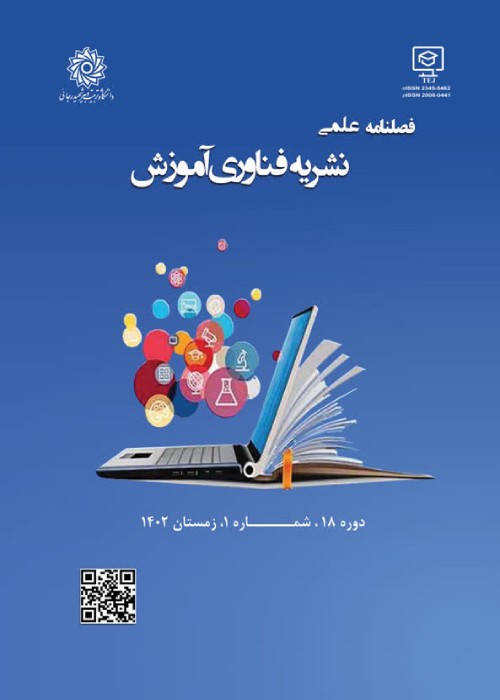Meta-synthesis of a comprehensive framework of factors affecting the usability of learning management systems
. Learning management systems are one of the most important platforms for virtual education, and usability is the most important feature that determines their quality. In the conducted research, various factors have been proposed as factors affecting the usability of learning management systems, but shortcomings in the field of usability of these systems and determining the factors affecting it in a comprehensive and practical guide map, based on which usability of learning management system can be evaluated and improved, is the challenge of various educational institutions in virtual education. Therefore, the purpose of this research is to extract the most important factors affecting usability and then present these factors in a comprehensive and practical framework.
In this research, the qualitative method and meta-synthesis approach were used. Based on the stages of the meta-synthesis approach, after stating the research questions and purposes, the systematic review method was used to search for research reports in the field of usability of learning management systems, which were the statistical population of this research, and the sample - the documents available in Scopus and Web of Science databases - was selected through purposive sampling. Then, the quality of research resources was examined through individual appraisal and comparative appraisal; the findings from the research were classified, these findings were synthesized by the taxonomic analysis approach, and finally, to examine the validity of the findings, the audit trail, consensual validity, and expert peer review methods were used.
The findings of this research included the usability factors of learning management systems and the presentation of these factors in a framework. In this framework, factors were categorized based on the responsible of each factor. Factors included navigation, visual design, learnability and memorability, efficiency, accessibility, errors correction, privacy and security, ease of use, ethical issues and compliance in the tasks of IT specialists and content, Instructor’s knowledge, and learning orientation in the task Instructors/instructional designers. Factors that both IT specialists and instructors/instructional designers were in charge of encompassed interactivity/interaction, assessment and feedback, help and documentation, usefulness, and satisfaction and enjoyment.
Based on the findings, by considering usability factors in designing and evaluation of learning management systems, it is possible to increase the efficiency and effectiveness of these platforms in virtual education and ultimately the level of learners' satisfaction. The results of this research, while enriching the research literature in the field of usability of learning management systems, help these systems to be used efficiently, effectively and satisfactorily by learners and teachers. The results also help system developers, instructional designers, and evaluators to adopt a more effective approach to improving system usability by designing and evaluating learning management systems based on the framework presented in this research. The time-consuming nature of testing the usability of learning management systems used in Iranian universities based on the proposed framework was one of the limitations of this research, and other researchers can focus on doing this test in future research. It is also suggested that future research, in addition to the Scopus and Web of Science databases, which have been selected as the sources for research reports, consider the resources available in other databases, such as ERIC and Google Scholar. In addition, increasing the number of reviewers of research in the systematic review and the number of evaluators in the phase of evaluating the quality of resources and validating findings make the results more generalizable. Finally, applying quantitative research methods as well as heuristic evaluation of usability factors can complement this qualitative research.
- حق عضویت دریافتی صرف حمایت از نشریات عضو و نگهداری، تکمیل و توسعه مگیران میشود.
- پرداخت حق اشتراک و دانلود مقالات اجازه بازنشر آن در سایر رسانههای چاپی و دیجیتال را به کاربر نمیدهد.


